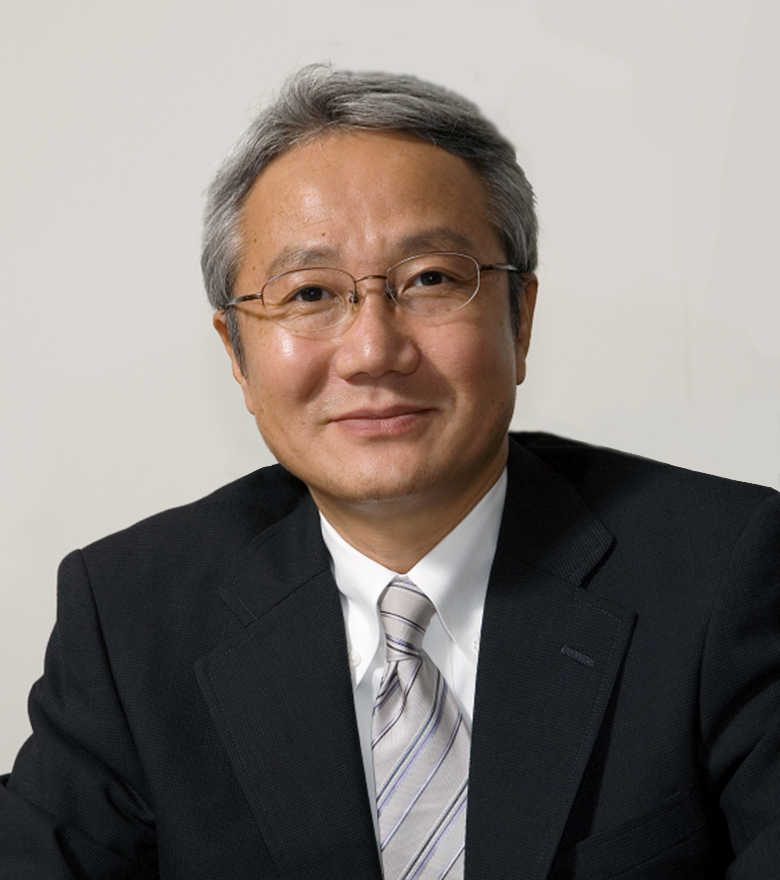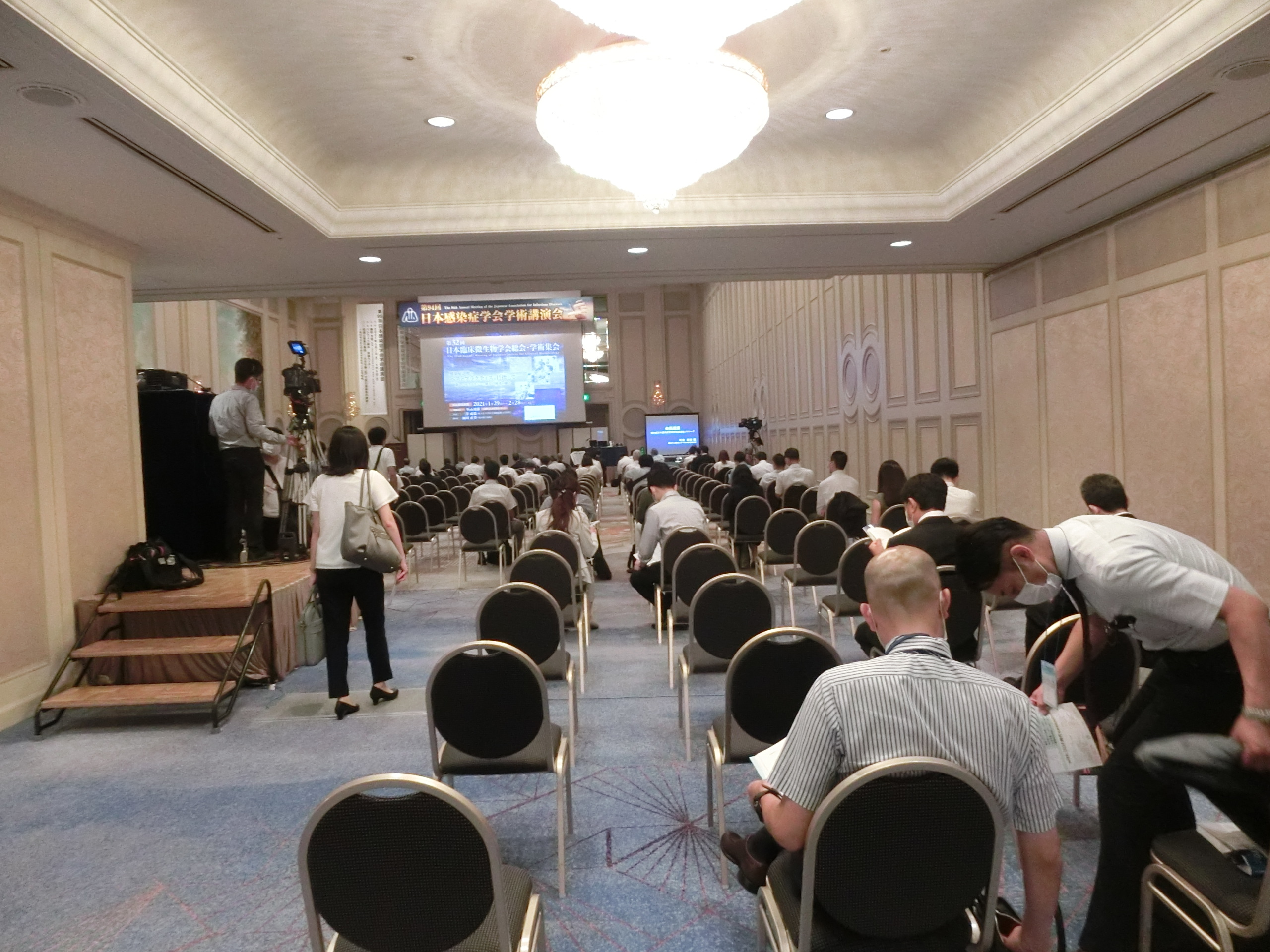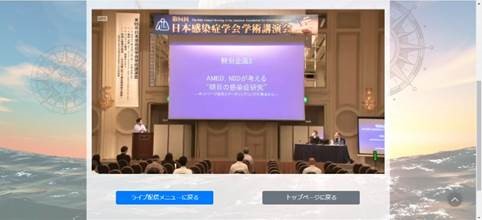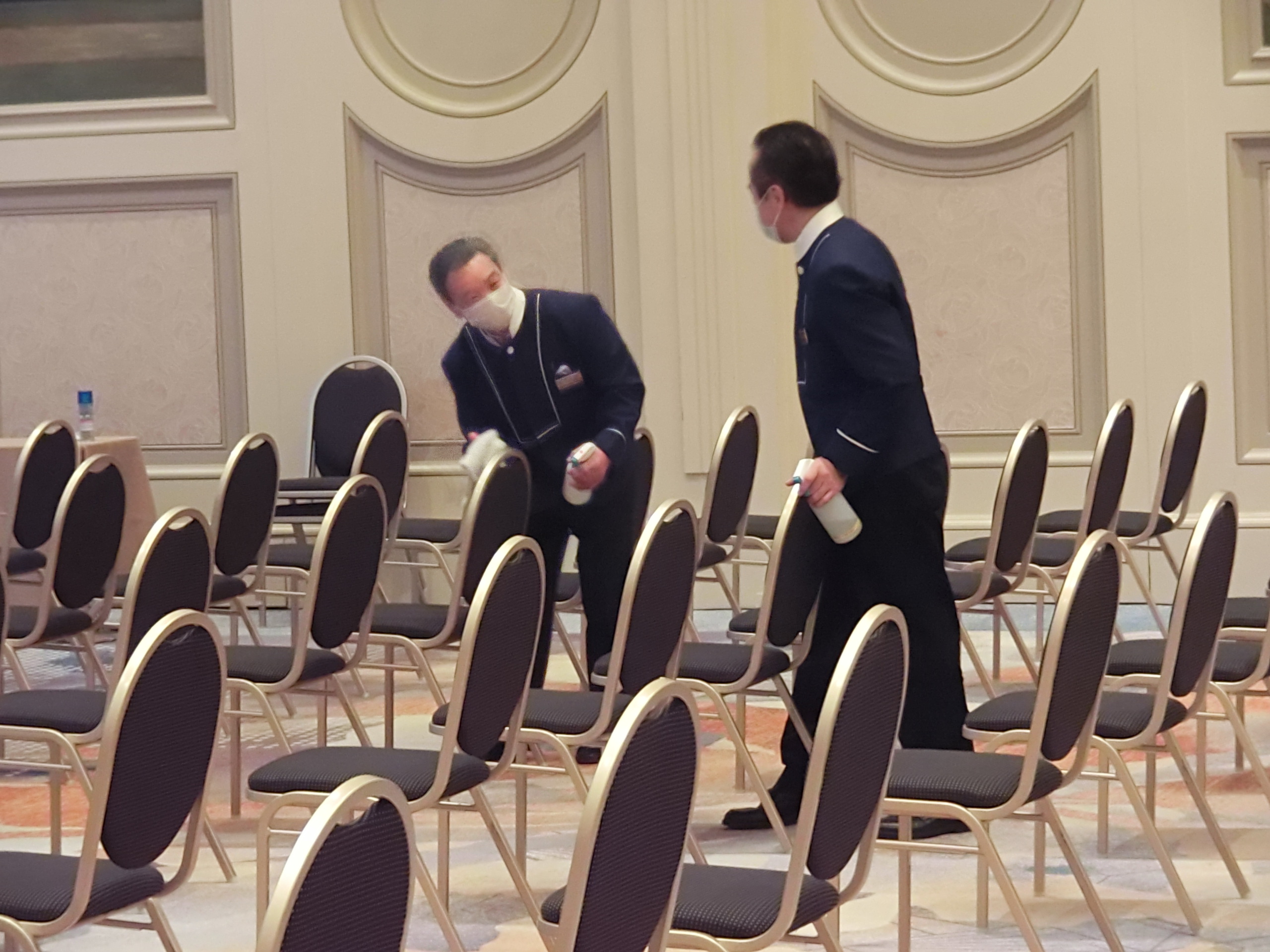Hybrid Experience Brings Success for the Japanese Association for Infectious Diseases Meeting
On August 19th through 21st, the Japanese Association for Infectious Diseases successfully hosted its 94th Annual Meeting in hybrid format, attracting approximately 600 in-person attendees at Grand Nikko Tokyo Daiba and 2,400 online participants. The number of hybrid meeting participants greatly exceeded last year's 2,600 participants.

“The decision to make the meeting hybrid was a difficult one,” noted Prof. Kazuhiro Tateda, the President of the Japanese Association for Infectious Diseases. “We carefully monitored the situation with COVID-19 and made a final decision to go hybrid at the beginning of July. Many specialists had been missing the opportunity to meet and share ideas and research outcomes face-to-face for a long time. Our Association and I received many inquiries from other associations on how to organize meetings in these 'new normal' conditions. Members of our association are infectious disease specialists and all know well at what timing and how to take measures to prevent infection. Many are at the forefront of battling COVID-19. We all felt the necessity of organizing a meeting partially in-person in order to show other associations that it is possible to have meetings in uncertain situations by implementing all safety measures. We were confident in our decision. If we don't model how to do this properly, who will?”
The hybrid format of the meeting included live broadcasts of the association president's opening presentation and invited speakers' keynote speeches as well as local and foreign speakers' live and recorded presentations via Zoom during the breakout sessions, organized in 10 breakout rooms. In all, there were 60 symposiums, 27 luncheon seminars, and 23 educational lectures in three days. Main and each breakout room required a team of technical specialists to ensure not only flawless connections but also the ability to offer professional certification credits. The exhibition was organized in the second-floor atrium and in the foyer of the main meeting room in the basement. The entire meeting was recorded and is available on demand.


Safety measures at the venue included spaced-out seating, mandatory masks, request to refrain from participation in group gatherings like parties before or after the meeting, and thorough hand hygiene. All meeting participants underwent body temperature testing before entering the venue. Moderators were permitted to remove their masks while presenting once they got on stage. All microphones and other surfaces were thoroughly sanitized between sessions. Attendees were also encouraged to download the COVID-19 Contact Confirming Application (COCOA), developed by the Ministry of Health, Labour and Welfare, and record any close contacts with infected individuals in a journal specially prepared.
 The venue for meeting, the Grand Nikko Tokyo Daiba, features spacious and flexible meeting rooms and is located in a picturesque area of Tokyo Bay called Odaiba. It is operating in accordance with the guidelines and recommendations established by the Japan Hotel Association. The hotel holds a “COVID-19 safety sticker,” which indicates the venue's safety. The Tokyo metropolitan government issues these stickers as a part of initiatives to encourage thorough implementation of the Tokyo Disease Control Measures Guidelines for Businesses.
The venue for meeting, the Grand Nikko Tokyo Daiba, features spacious and flexible meeting rooms and is located in a picturesque area of Tokyo Bay called Odaiba. It is operating in accordance with the guidelines and recommendations established by the Japan Hotel Association. The hotel holds a “COVID-19 safety sticker,” which indicates the venue's safety. The Tokyo metropolitan government issues these stickers as a part of initiatives to encourage thorough implementation of the Tokyo Disease Control Measures Guidelines for Businesses.
The 94th Annual Meeting as a pioneer hybrid meeting in Tokyo was a wonderful opportunity for the organizers, the venue, and various suppliers to learn about the benefits and challenges of such a gathering. Business Events Tokyo, together with the city's suppliers and other partners, will continue to explore the best ways to organize and support the implementation of international meetings appropriate for the “new normal” to ensure that organizers of MICE events choose Tokyo as an attractive meeting destination for many participants.

